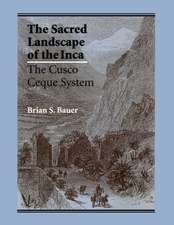Japan And Asian Modernities
Autor Rauden Limba Engleză Hardback – 30 mai 2007
| Toate formatele și edițiile | Preț | Express |
|---|---|---|
| Paperback (1) | 416.96 lei 6-8 săpt. | |
| Taylor & Francis – 14 mar 2012 | 416.96 lei 6-8 săpt. | |
| Hardback (1) | 1065.06 lei 6-8 săpt. | |
| Taylor & Francis – 30 mai 2007 | 1065.06 lei 6-8 săpt. |
Preț: 1065.06 lei
Preț vechi: 1298.85 lei
-18% Nou
Puncte Express: 1598
Preț estimativ în valută:
203.80€ • 210.25$ • 170.07£
203.80€ • 210.25$ • 170.07£
Carte tipărită la comandă
Livrare economică 26 martie-09 aprilie
Preluare comenzi: 021 569.72.76
Specificații
ISBN-13: 9780710311030
ISBN-10: 0710311036
Pagini: 318
Dimensiuni: 152 x 229 x 19 mm
Greutate: 0.75 kg
Ediția:1
Editura: Taylor & Francis
Colecția Routledge
Locul publicării:Oxford, United Kingdom
ISBN-10: 0710311036
Pagini: 318
Dimensiuni: 152 x 229 x 19 mm
Greutate: 0.75 kg
Ediția:1
Editura: Taylor & Francis
Colecția Routledge
Locul publicării:Oxford, United Kingdom
Cuprins
Introduction, Chapter 1: Rationality, Ritual and Life-shaping Decisions in Modem Japan, Chapter 2: All for One and One for All? Reconsidering Collectivity in the Modernisation of Japanese Business Firms, Chapter 3: Modernity and Transformation of the Japanese State, Chapter 4: Japanese Model and Korea's Modernization Efforts: 1800-1890s, Chapter 5: A Japanese Acculturation Pattern: the Affinities of Values in the Conflux of the Old and the New, Chapter 6: Navigating the Euro-American Enlightenment: Japan and the Modem World, Chapter 7: A Comparative Analysis of Challenge Discourses:'Overcoming Modernity' and the 'Asian Values' Debate, Chapter 8: Tradition and its Uses:Business and Ideology in Japaese Domestic Tourism, Chapter 9: Wagamama Technology, Chapter 10: The Emergence of Chinese Keiretsu?, Chapter 11: Westernization of Business Organizations in Japan and China: Continuity and Change, Chapter 12: Sensei Seeks Students, Willing to Lend Tuitions, Bibliography
Descriere
Descriere de la o altă ediție sau format:
The effect of Japan on the challenges and complexities of the modernisation process that globalisation has brought to the fore in Asia are the subject of this interdisciplinary volume by leading scholars in the field. Using fascinating examples drawn from current business and organisational practice in Asia, it focuses on the impact that Japanese modernity has made in Asia as a model to be imitated because of its apparent success in adopting western technologies while retaining its own cultural identity.
The effect of Japan on the challenges and complexities of the modernisation process that globalisation has brought to the fore in Asia are the subject of this interdisciplinary volume by leading scholars in the field. Using fascinating examples drawn from current business and organisational practice in Asia, it focuses on the impact that Japanese modernity has made in Asia as a model to be imitated because of its apparent success in adopting western technologies while retaining its own cultural identity.






















